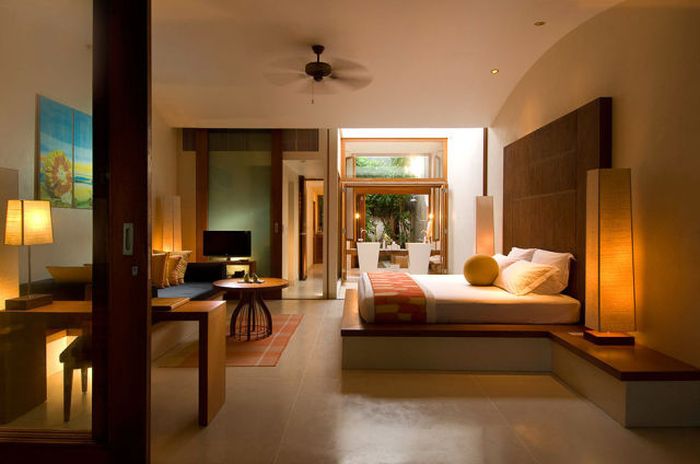|
|
Conrad Maldives Rangali Island Resort, Rangali, Alif Dhaal Atoll, Maldives
|
After the long Buddhist period of Maldivian history, Muslim traders introduced Sunni Islam. Maldivians converted to Islam by the mid-12th century. The island has a long history of Sufic orders, as can be seen in the history of the country such as the building of tombs. They were used until as recent as the 1980s for seeking the help of buried Saints. They can be seen today next to some old mosques and are considered today as cultural heritage. Other aspects of tassawuf, such as ritualized dhikr ceremonies called Maulūdu (Mawlid)—the liturgy of which included recitations and certain supplications in a melodical tone—existed until very recent times. These Maulūdu festivals were held in ornate tents specially built for the occasion. At present Sunni Islam is the official religion of the entire population, as adherence to it is required for citizenship.
Since the 12th century AD there were also influences from Arabia in the language and culture of the Maldives because of the conversion to Islam and its location as a crossroads in the central Indian Ocean. This was due to the long trading history between the far east and the middle east. Somali travelers discovered the island for gold in the 13th Century, before the Portuguese. Their brief stay later ended in a bloody conflict known by the Somalis as "Dagaal Diig Badaaney" in 1424.
According to Moroccan traveler Ibn Battuta, the person responsible for this conversion was a Sunni Muslim visitor named Abu al Barakat sailing from Morocco. However, more reliable Maldivian tradition says that he was a Persian saint from Tabriz called Yusuf Shamsuddin. He is also referred to as Tabrizugefaanu. His venerated tomb now stands on the grounds of the Friday Mosque, or Hukuru miskiy, in Malé. Built in 1656, this is the country's oldest mosque.
|
|









